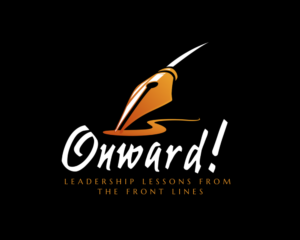Today is a federal holiday to celebrate and honor Dr. Martin Luther King Jr. I find myself in an awkward situation because today is not an official GreenPoint holiday. I can list any number of logical reasons, but the reality is that when we discussed which holidays to celebrate, I didn’t raise the issue and our leadership team never had the discussion. That’s on me. Martin Luther King Jr. is an important person and a huge part of our history. It’s an important day.
After recognizing my omission on Saturday, I spent time reading about Dr. King’s life and thinking about his legacy. I re-read his Letter from Birmingham Jail (which I can’t recommend enough) and researched the holiday itself, reading Ronald Reagan’s Presidential Proclamation when he signed the bill into law that made the day an official federal holiday in 1984.
Dealing with race is difficult. Dealing with race at work is fraught with even more danger. Many of us who are white are terrified of saying the wrong thing, offending someone and finding ourselves in hot water. These days, with division so rampant in this country, we risk upsetting people on both sides of the political divide. So we keep our head down, avoid the topic, and try to make progress at the margins. But then I came to the part in Dr. King’s Letter from Birmingham Jail where he talked about white moderates:
“[I] must confess that over the last few years I have been gravely disappointed with the white moderate. I have almost reached the regrettable conclusion that the Negro’s great stumbling block in the stride toward freedom is not the White Citizens Councilor or the Ku Klux Klanner but the white moderate who is more devoted to order than to justice; who prefers a negative peace which is the absence of tension to a positive peace which is the presence of justice, who constantly says, ‘I agree with you in the goal you seek, but I can’t agree with your methods of direct action.’”
It felt like he was talking directly to me.
I am also cognizant of my place as a new leader from the Pacific Northwest, as an outsider. Who am I to say anything or judge anything when I arrived here in the South just a short eighteen months ago? Again, Dr. King provided guidance, as he was accused of being an outsider from Atlanta himself. He wrote, “Injustice anywhere is a threat to justice everywhere. We are caught in an inescapable network of mutuality, tied in a single garment of destiny. Whatever affects one directly affects all indirectly.”
What amazes me about Dr. King is his incredible approach to change and his commitment to nonviolence. Dr. King specifically sought to find the balance between the “force of complacency,” those who would choose to do nothing under the guise of “Can’t we all just get along?” and the “forces of bitterness and hatred,” whose leaders “com[e] perilously close to advocating violence.” He studied Mahatma Gandhi and India’s struggle for independence from British rule. Like Gandhi, he recognized that non-violent civil disobedience was the only way to force positive change, creating the crisis and driving the need for change without violence and destruction.
Dr. King knew that change would require intense effort and suffering. The people instigating the nonviolent protests trained extensively to remain peaceful, “accepting blows without retaliating” and “enduring the trials of jail.” One of my favorite quotes is “Don’t ask yourself what you want in life. Ask yourself ‘What are you willing to suffer for?’” Dr. King and those he led suffered incredible hardships and risked their lives to advance the causes of justice and civil rights. We are in their debt.
There are some out there today who oppose learning about our nation’s less colorful history (all puns intended). They are concerned that acknowledging our past mistakes will make us somehow less worthy of our success today. I disagree.
America is the greatest nation in the history of the world. The change across the world over the past 245 years brought about by our Declaration of Independence and the freedoms enshrined in our Constitution are as profound as anything in history. Some form of Democracy now exists in close to 60% of the countries in the world. Our leadership against tyranny since World War II — for the expansion of democracy, freedom, and individual rights around the world — has led to a period of peace and prosperity unmatched in human history. But our past is not perfect. Our expansion across Native American lands, our history of slavery and Jim Crow, that women only gained the right to vote 100 years ago, and more recently, our internment of Japanese Americans in World War II remain dark stains on the fabric of our nation. I certainly am not immune. The idyllic island I grew up on off the coast of Seattle was the first place in the US to round up, deport and jail Japanese Americans in 1942.
That doesn’t exactly make me proud. But what makes me proud – and what makes us different as a country – is our very willingness to confront our past, to acknowledge our mistakes and to continue the struggle towards a “more perfect Union.” America is not so much a destination as a never-ending journey towards an ideal. And we celebrate Dr. King because he helped advance us several steps on that journey.
Our world may feel divided today and, of course, serious issues remain. Our democracy is far from perfect. But as we struggle, let us be reminded of Dr. King’s legacy. We are better for our differences and stronger for the struggle. Through the hard work of many like Dr. King, we can learn from our mistakes and move forward together towards a brighter future. And when faced with the darkness of fear and uncertainty, we need to remember Dr. King’s words most of all, “Darkness cannot drive out darkness, only light can do that. Hate cannot drive out hate, only love can do that.”
Happy Dr. Martin Luther King Jr. Day.
Onward!
Jeff





